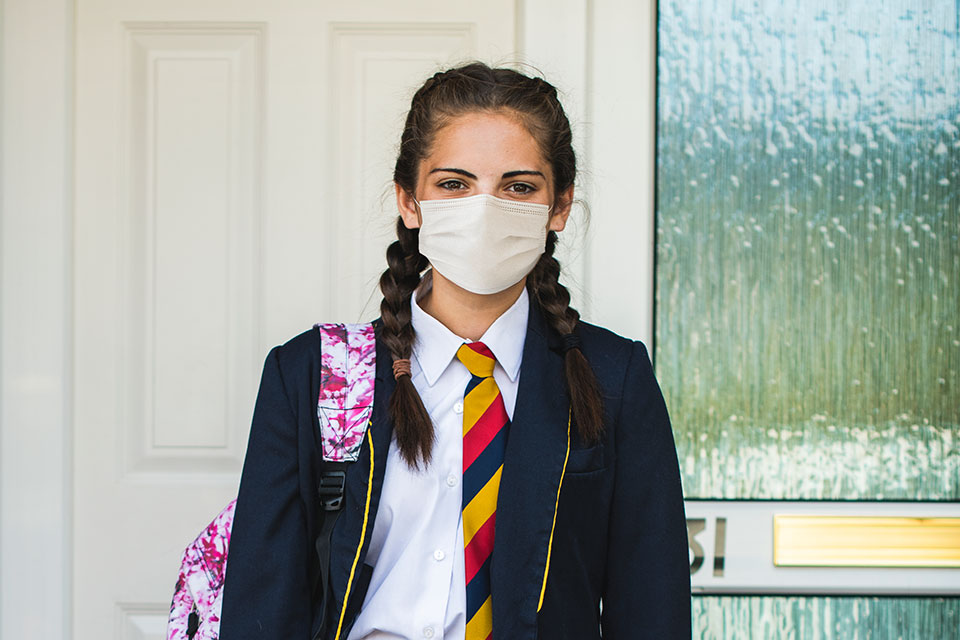Global Undergraduate Applications • Guide to Indian Liberal Arts Schools
COVID-19 Effects: What Will Change for 2020-2021 UG Admissions?
POSTED ON 05/30/2020 BY The Red Pen

The coronavirus pandemic has severely disrupted students’ schedules and plans, especially those looking to apply in the upcoming undergraduate admissions cycle. Students are left wondering how it will pan out, what alternatives exist to learn about colleges and the status of standardised tests.
Here is some clarity on how the application process has changed:
1) Standardised tests for US colleges:
Last month, the College Board announced that it has cancelled the May and June SATs. It will now conduct the tests every month from August to December. If students still can’t go to the test centres because of COVID-19, the SAT will be administered digitally. The College Board is working out the modalities for the test-from-home format. Registrations for SATs opened on May 27 for those applying for the 2020-21 cycle, as well as for those who had registered for the May and June dates. For other students, the registrations will open on June 4.
Subject SATs will be conducted in August, October and December this year. The ACT had also cancelled its April tests dates and soon after released new dates. The ACT will now be conducted on June 12 and June 13 and July 17 and July 18. The AP exams took place in a significantly altered format. It was a 45-minute test which students took from home.
2) US colleges going test-optional:
Due to standardised tests being cancelled and limited availability of test dates for students applying for Fall 2021, many selective colleges have announced that they will introduce test-optional admissions for this year’s applicants. Colleges such as the University of California campuses, Claremont McKenna College, Cornell University and Amherst College have all updated their testing policies. Please note that colleges are going test-optional. Even so, we strongly advise students to take either the SAT or ACT test if possible as it will make them a competitive applicant. Along with this, many colleges have always been test-optional and might extend this policy to international students this year. FairTest has a full list of these colleges, along with those who have temporarily adjusted their policies due to COVID-19.
3) School grades:
Students must continue to work hard and score well in the upcoming semester. It will be a good idea to finish college application work over the summer so that they can focus on their exams when schools open.
4) Impact on admissions:
Many students may take a gap year and join the international cohort for next year, making the 2020-21 admissions slightly more competitive. On the other hand, colleges may also prefer to admit international students as a large majority of them pay full tuition, which will benefit the institution. Keeping both these factors in mind, we would advise students to definitely apply in the Early Decision or Early Action rounds for US colleges to demonstrate their keenness in a particular college and have that extra edge.
5) Researching colleges:
Since students can’t visit college campuses this summer and college AOs also cannot visit schools or hold information sessions in person, students must begin their college research by attending webinars of colleges and take virtual tours. Colleges has never been as ready and eager to share information as now! For instance, the University of Washington has an option on its website for students to take virtual tours and reach out to tour guides and ask specific questions. Also, keep track of colleges’ social media pages and follow their student blogs and vlogs. You can also reach out to admissions offices directly by email with genuine queries, which can sometimes constitute as demonstrated interest.
6) Extracurricular activities and summer programmes:
Extracurricular activities form a very important part of the application. But with the pandemic playing spoilsport and competitions and sports events at a standstill, colleges will understand that students cannot continue their scheduled activities. Students who plan to attend summer programmes may also feel at a loss. However, colleges such as Ashoka University have now gone online with their summer programmes. Students can also explore creative options such as starting a blog or vlog, finding ways to contribute to the community’s efforts in fighting coronavirus while maintaining social distancing norms or getting involved in the social media efforts of NGOs. There are many ways students can keep busy this summer while staying home. Admissions officers will particularly notice these efforts to engage in safe volunteering during the COVID-19 situation.
7) Financial aid:
It is anticipated that colleges’ financial aid budgets may decrease in the upcoming cycle as market fluctuations impact their endowments. Colleges will evaluate this on a case-by-case basis. However, there is a good chance that financial aid and merit scholarships will take a hit.
8) Interviews:
Interviews are an integral part of global university applications. In the US, colleges often encourage students to conduct an alumni interview. You are paid with an alumnus in your region and these typically happen in person. Given the pandemic, it is likely that these will happen online. As for the UK, Oxbridge applicants are usually invited to the Universities of Oxford/Cambridge to have face-to-face interviews with tutors. These academic-based interviews are an important part of the Oxbridge admissions process. Though they have been offered online in the past, most students would attend the on-campus interviews. This year, the Universities of Oxford and Cambridge have announced that in-person interviews will not occur.
Remember that the current situation is fluid and colleges will routinely update their websites and social media with the latest news. For more information on what students in grade 11 can do now to get a head start on their applications, click here. For an overview of the common application, click here. For more information, get in touch with us.




